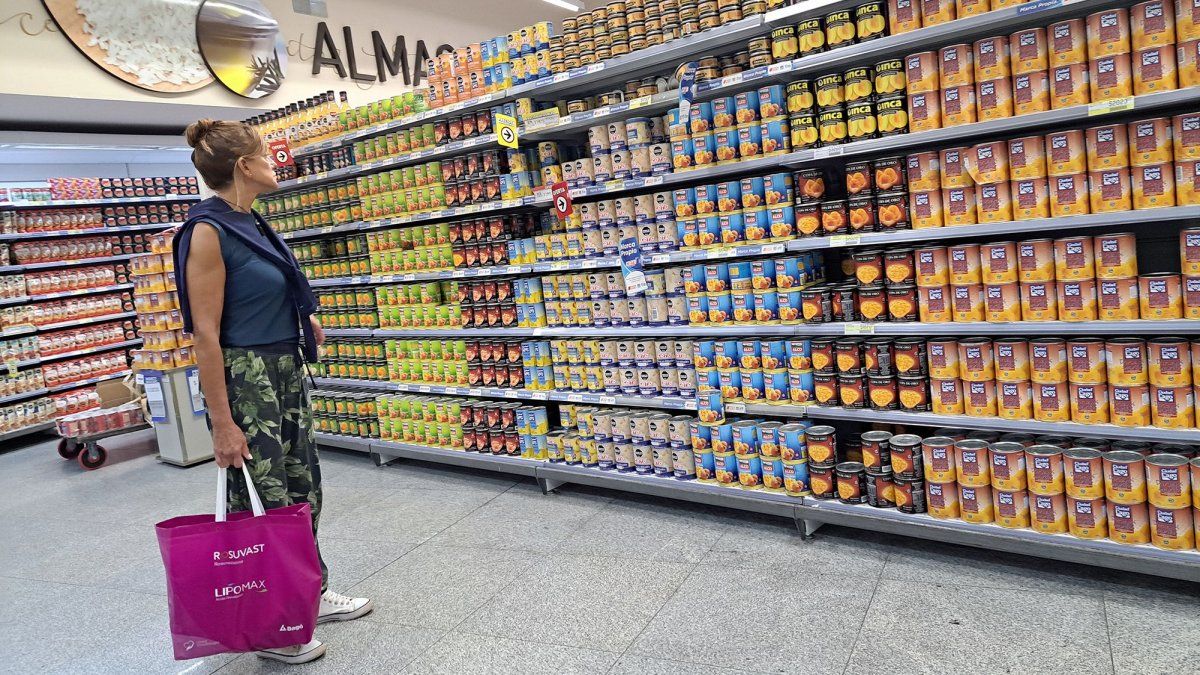The accelerated inflation of recent months and the consequent loss of purchasing power of wages generated a reconfiguration in consumption habits. Now people are becoming more selective when buying in supermarkets, mainly because they pursue a very clear objective: to get the best prices.
As a result, consumers choose cheaper brands or stop purchasing some products. According to a report by the consulting firm NielsenIQ, this trend began to be observed towards the end of last year. In addition, growth was recorded in sales of supermarkets’ own brands, which strengthened between December and January of this year. The biggest jumps occurred in foods, followed by cosmetic and toiletry products.
Inflation: the diagnosis of the economic situation
According to the reportthe economic situation in Argentina continues to deteriorate since May 2023, showing worrying similarities with the crisis experienced in 2018/2019. During this period, there was a significant increase in inflation, reaching a peak of 211%, as well as an increase in the historical poverty level that exceeded 50%.
Refering to inflation, An increase is projected from 227% to 247% by 2024, which contributes to a further deterioration in the purchasing power of Argentines. The interior of the country is the most affected by the crisis, and a significant drop in consumption has been observed in the last two months. Córdoba and Buenos Aires during the summer season show a slight recovery in January vs December.
Supermarkets: the strategy to avoid a brutal drop in sales
Detailed analysis of market behavior reveals that, despite the crisis, Supermarkets are the channel that best “resists”although the elimination of fair prices produced a sharp slowdown in consumption in December-January. This category gained relevance in 2023 and its predominance is still observed in the short term despite being the one that increased prices the most in December and January 2024, reaching a price increase of 230% and being between 15 and 25 points above the rest. of the channels.
The Supermarkets’ own brands are strengthened with a better performance than the average of all product families, except beverages (falls 39%). The biggest jumps in the consumption of these own brands occur in food (29.4% in the two-month period December-January 2024), and cosmetics and toiletries (25.9%).
In the short term, a migration of premium products to the mainstream (most popular) or low value (low price). With some subtleties, these changes occur in all areas (drinks, food, cleaning, and cosmetics).
consumption commerce sales food inflation supermarkets prices.jpg
In the short term, a migration of premium products to the mainstream (most popular) or low value began to grow.
Depositphotos
Consumption: the performance of wholesalers and warehouses
Wholesalers, like supermarkets, present a strong price increase in January 2024, affecting their performance where consumption falls sharply. Warehouses and Self-service stores contract strongly throughout the country in the last two months vs. the same month of the previous year, with the suburbs and Buenos Aires plus the South of the country being where the drop is most pronounced.
The report also highlights the importance of omnichannel in times of crisis, inhelping companies improve their Pricing architecture and promotion effectiveness to drive further increases. The need to optimize the portfolio and guarantee the presence of key products in stores is emphasized.
Source: Ambito




